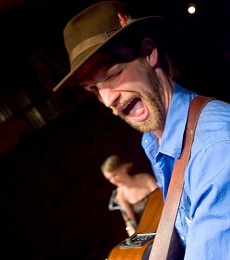Someone recently asked “Why should I pay $20 to see someone at a house concert that I can see for ‘free’ at other places?”
That’s a good question, and I hope you’ll consider my response.
When you go to a club or restaurant to see someone for “free”, it’s not really free. You have the costs of food/drink purchased while there, as well as tipping a waiter/waitress. That can quickly add up to $20/person or more, and THE MUSICIAN GETS NONE OF IT. So, don’t forget to add in the cost of tipping the musician when you go to that “free” bar or restaurant, because the bar or restaurant is paying the musician a minimal amount, and they need your tips to make any money.
At a house concert, you are provided FREE snacks and bottled water, and your cost of bringing your own beer or wine is a fraction of what you would pay for drinks at a bar or restaurant. AND THE MUSICIAN GETS 100% of all money collected.
So do you save any money when you go somewhere else to see a musician perform for “free”? Not likely. But the difference in income to the musician is huge.
But there is so much more difference than how much you will spend or how much the musician will make.
Tired of leaving a performance smelling like a stale cigarette? That won’t happen at a house concert.
Many venues are so noisy that you can barely hear the musician. If you are there for the music, the noise and distractions are as frustrating to you as they are to the musician. At a house concert you are free from the smoke, noise, and distractions.
But the biggest difference in these environments is the difference to the musician. Can you imagine the irony and frustration a musician feels when performing the song that broke their heart, or tells the story of their greatest love, or the song that came from the depths of their emotions, for the typical bar or restaurant crowd? Pouring their heart out and it seems that no one is listening? Feeling like they are just background noise? Musicians write and perform in order to relate. And sometimes traditional venues make relating to an audience very difficult and frustrating.
The best part of a house concert is the intimate nature of this environment. It is comfortable. You are close to the musician. And in this intimacy, something transformative happens. The musician opens up. They don’t just perform, they relate. They talk to you. They tell stories. You get to hear the story behind the music. The story of how this song came to be written. The story of how that song influenced their life. The story of how this person you are listening to became a musician, why they love it, and how much it means to them. You won’t get this anywhere else. And by the end of the evening, you not only appreciate the music a little more, you understand and appreciate the musician. A lot more.
It really does make economic sense to pay to attend a house concert. Economic sense for you, and especially for the musician. But what is really significant has nothing to do with economics.
What makes a house concert make sense is the total experience. It feeds your soul with goodness, pleasure, joy, smiles, and laughter. You will be touched by unexpected emotions. But what you don’t know in advance is that, at the end of the evening, you will have given back to the musician as much as you have received, simply by being part of a back-and-forth exchange between musician and audience that musicians crave, but rarely experience.
You won’t experience this in a noisy, smoky bar. You won’t find it over the clatter of voices and plates and silverware and glasses in a restaurant. A house concert is a transcendent environment, and the experience is unlike any other, for both you and the musician.
House concerts are open to everyone. You don’t need to know anyone there. You will meet some of the nicest people. You will be welcomed and your presence will bless both you the musician more than you could know.
Make plans to attend and support House Concerts at every opportunity. You’ll be glad you did!

